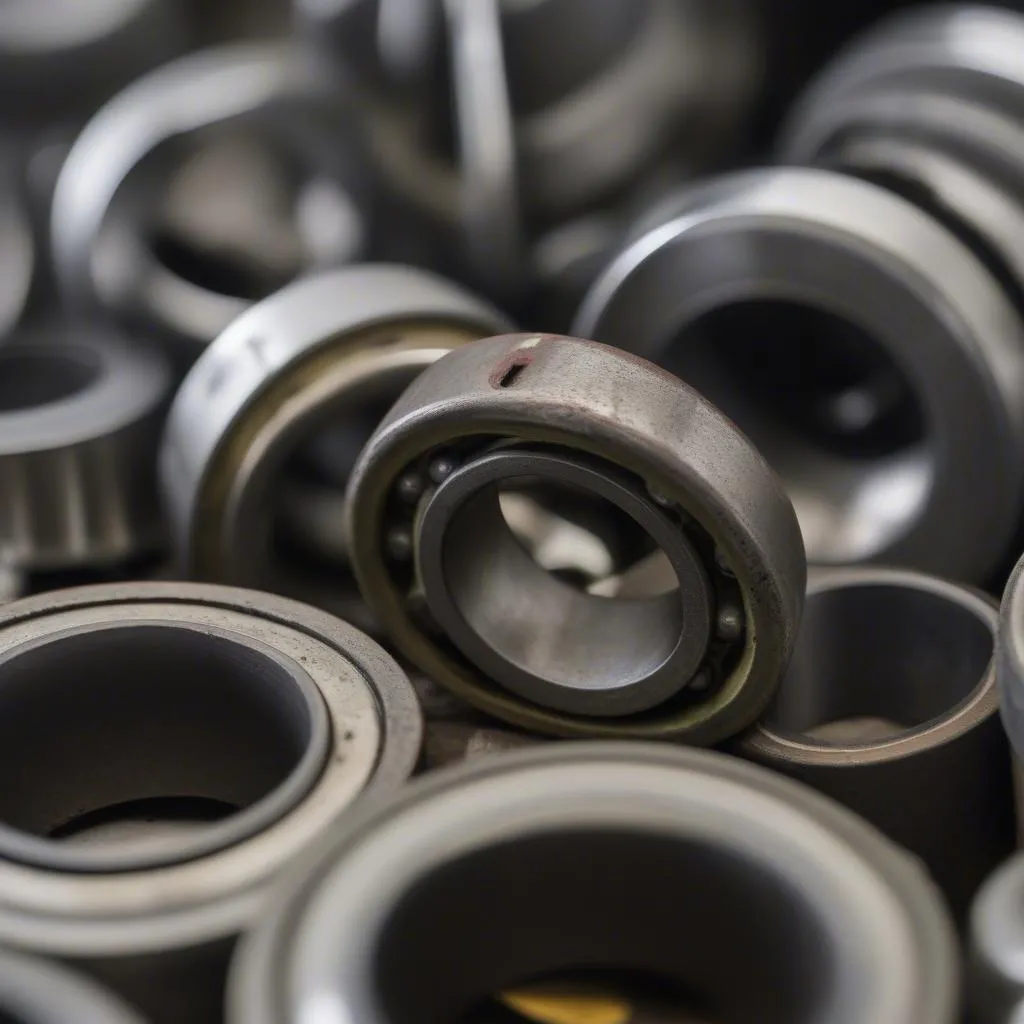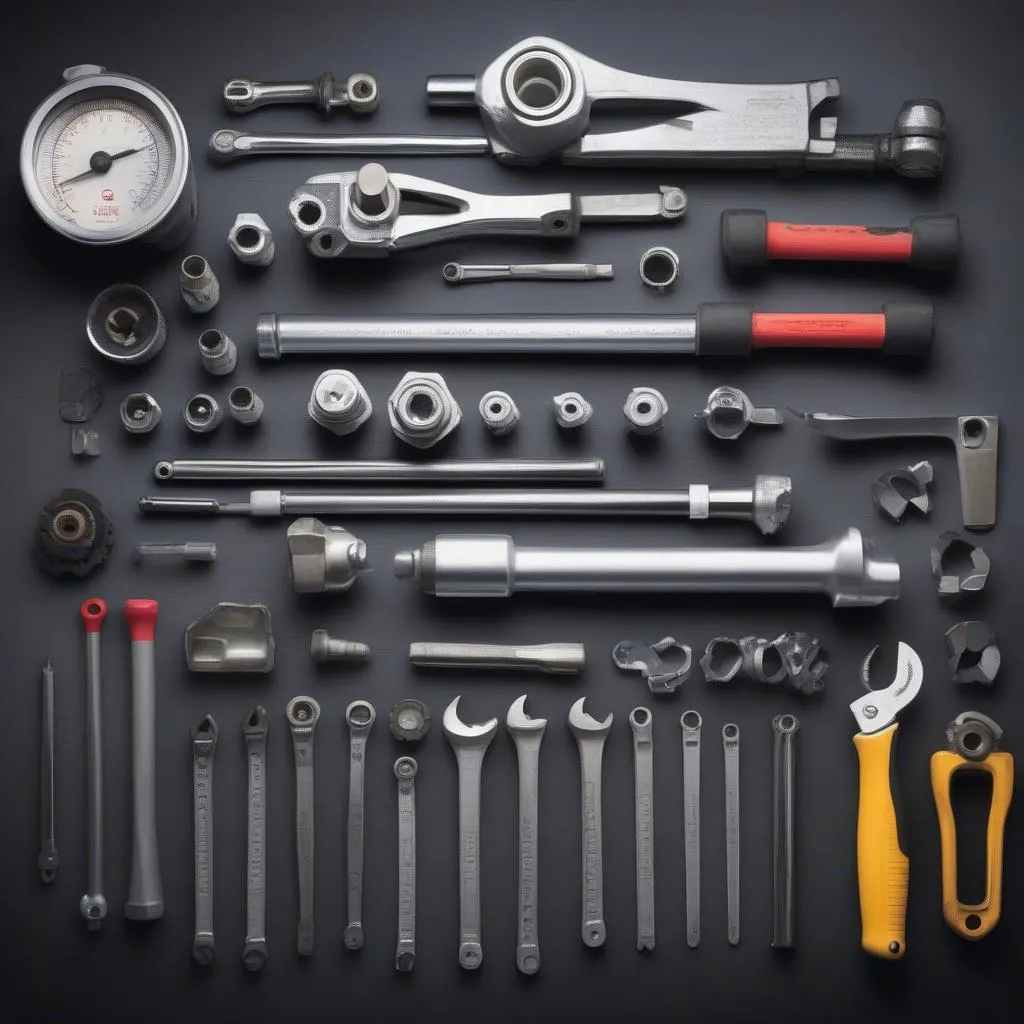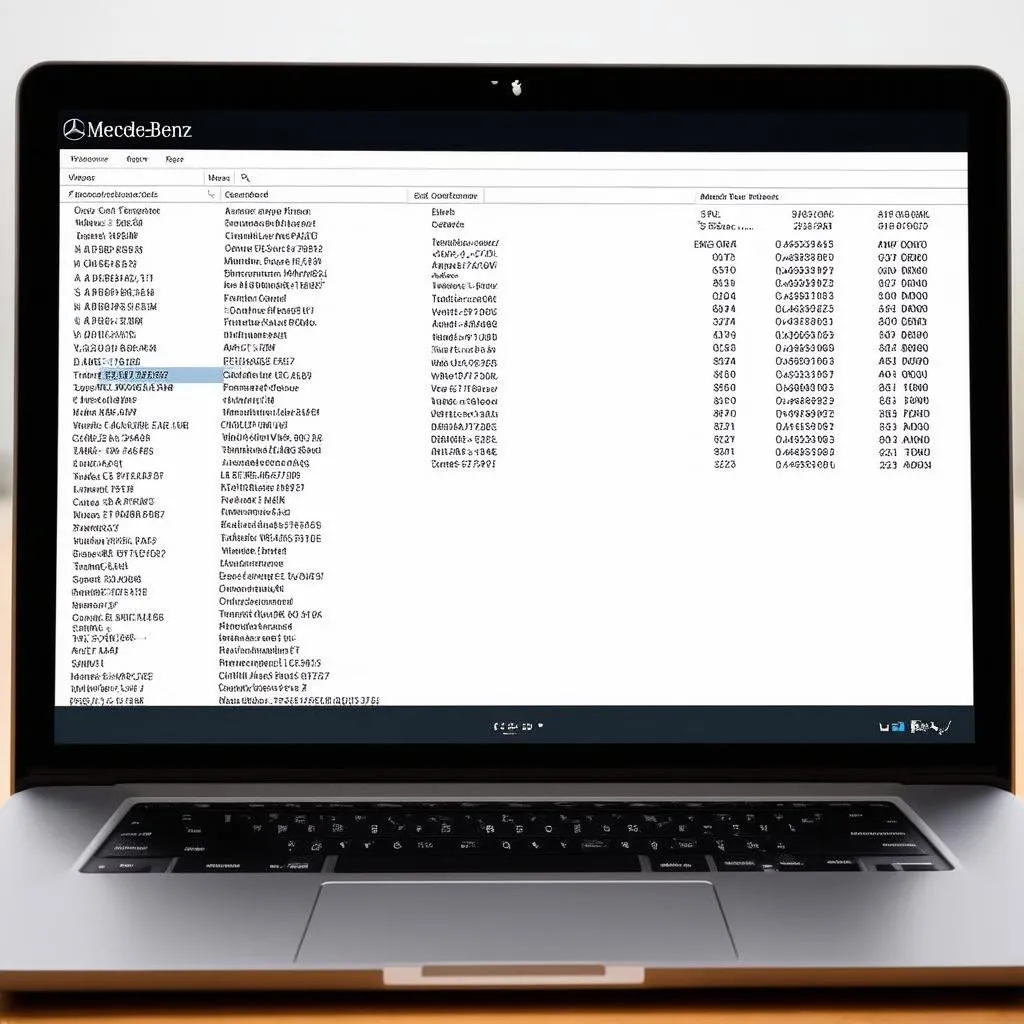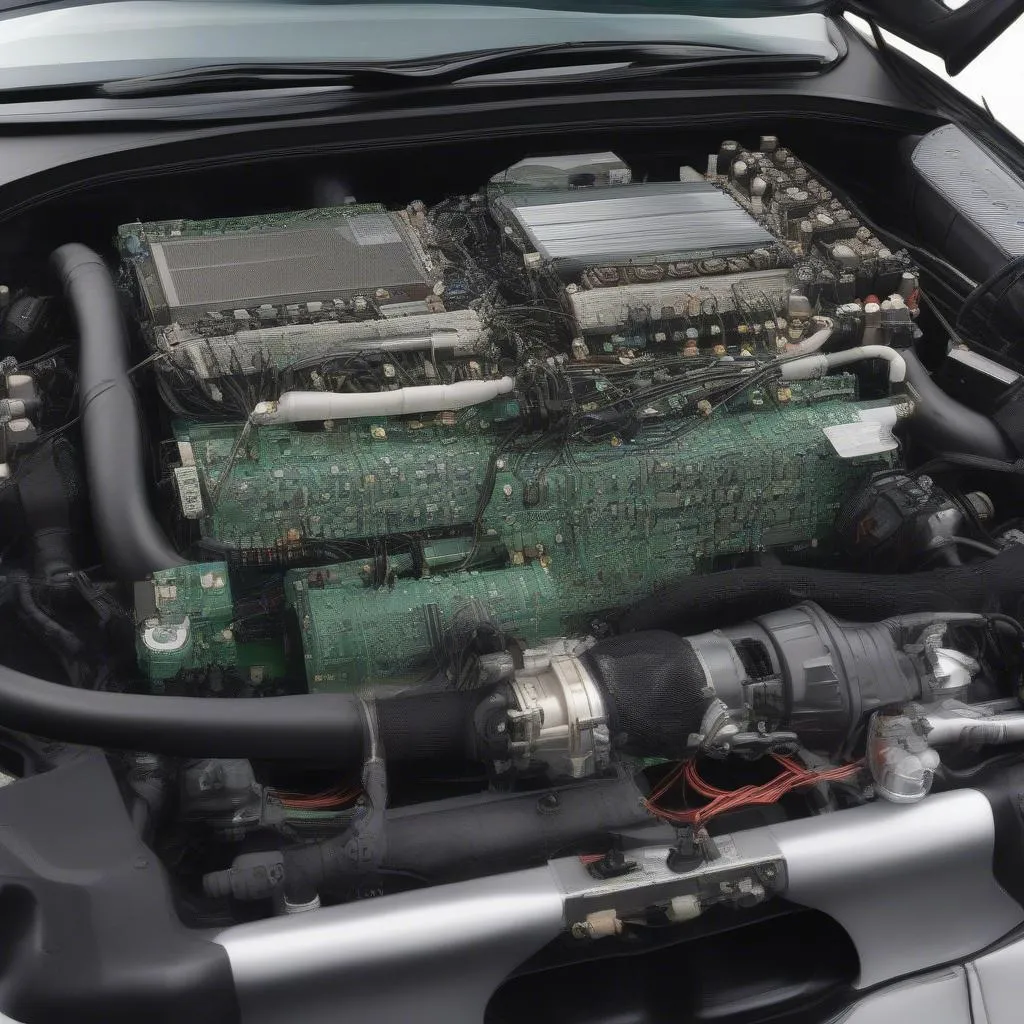Experiencing a loud knocking noise coming from your 2000 Mercedes-Benz M320 engine bay can be quite alarming. While it’s always best to consult with a qualified mechanic for a definitive diagnosis, this comprehensive guide aims to shed light on potential causes and provide insights into troubleshooting and fixing the issue.
Common Causes of a Knocking Noise in a 2000 Mercedes-Benz M320
Before diving into solutions, let’s explore some common culprits behind that unsettling knocking sound:
1. Worn Rod Bearings: Rod bearings, responsible for the smooth movement of connecting rods and the crankshaft, can wear down over time. This wear can lead to excessive play and a knocking sound, especially noticeable during acceleration or deceleration.
2. Worn Main Bearings: Similar to rod bearings, worn main bearings, which support the crankshaft within the engine block, can cause a knocking noise if they become excessively worn.
3. Low Oil Level or Poor Oil Quality: Insufficient lubrication due to low oil level or degraded oil quality can result in increased friction and a knocking noise emanating from various engine components.
4. Faulty Timing Chain Tensioner: A loose or failing timing chain tensioner can cause slack in the timing chain, leading to a slapping or knocking sound, particularly noticeable at idle or low RPMs.
5. Detonation or Pre-Ignition: Detonation (also known as knocking) or pre-ignition occurs when the air-fuel mixture in the combustion chamber ignites prematurely or erratically. This can create a metallic pinging or knocking sound.
Diagnosing the Knocking Noise
Identifying the specific source of the knocking noise is crucial for effective repair. Here’s a step-by-step approach:
-
Listen Carefully: Pay close attention to when and where the noise is most prominent. Does it occur during acceleration, deceleration, idle, or specific engine speeds? Is it louder on one side of the engine?
-
Check the Oil: Inspect the engine oil level and condition. Low oil level or dirty, sludgy oil can indicate a lubrication problem.
-
Inspect the Timing Chain Tensioner: Visually inspect the timing chain tensioner for any signs of wear, leaks, or looseness.
-
Consider a Professional Diagnosis: If the source of the noise remains unclear, it’s highly recommended to seek assistance from a qualified mechanic who can perform a thorough inspection, potentially using specialized diagnostic tools.
 Worn Engine Bearings
Worn Engine Bearings
Tools and Materials for Repair
Depending on the underlying cause of the knocking noise, you may need the following tools and materials for repair:
- Socket set
- Wrench set
- Torque wrench
- Engine hoist (if engine removal is necessary)
- Replacement rod bearings, main bearings, timing chain tensioner, or other faulty components
- Engine oil and filter
 Car Engine Repair Tools
Car Engine Repair Tools
Repair Procedures
Note: Repairing internal engine components is a complex task that requires advanced mechanical knowledge and experience. If you’re not comfortable working on your vehicle’s engine, it’s best to leave it to the professionals.
1. Replacing Worn Bearings: This involves removing the engine, disassembling it, replacing the worn bearings, and reassembling the engine.
2. Replacing a Faulty Timing Chain Tensioner: This may involve removing engine components to access and replace the tensioner.
3. Addressing Detonation or Pre-Ignition: This may require adjusting ignition timing, using higher-octane fuel, or addressing underlying engine issues that might be causing pre-ignition.
FAQs
Q1: Can I continue driving my Mercedes-Benz M320 with a knocking noise?
A: It’s strongly advised against continuing to drive with a persistent knocking noise. It could indicate a serious engine problem that could lead to further damage if ignored.
Q2: Are there any preventative measures to avoid engine knocking?
A: Yes, regular engine oil changes with high-quality oil, timely maintenance, and addressing minor engine issues promptly can help prevent many knocking-related problems.
Q3: Can diagnostic software help identify the cause of engine knocking?
A: Yes, professional-grade diagnostic tools, such as those offered by CARDIAGTECH, can assist in identifying engine knocking causes by reading engine codes and analyzing sensor data.
Conclusion
A knocking noise in your 2000 Mercedes-Benz M320 should never be ignored. By understanding the potential causes, following proper diagnostic steps, and seeking professional help when needed, you can address the issue effectively and keep your Mercedes running smoothly. Remember, early detection and repair are crucial for preventing further damage and costly repairs down the road.
mercedes-benz-m320-engine|Mercedes-Benz M320 Engine|A close-up view of a Mercedes-Benz M320 engine, highlighting the engine components.


